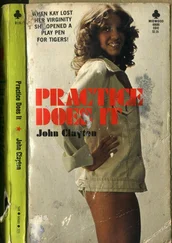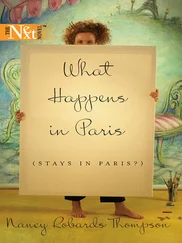Mr. V. wondered if her bed was covered in white down, like a snowdrift. Did she go to bed in a gown like Sleeping Beauty?
It was time to show her the bills for the sale of two paintings and a sculpture of indefinable genre. Fanny signed her name in the designated places, and the envelope changed hands. She never asked any questions about her mother, which always put the gentleman ill at ease. But he was strictly professional; besides, he had other meetings to attend to. Fanny was also strictly professional and knew how to get what she wanted. There was no need to waste their time here anymore. Mr. V., however, did deliver his wife’s invitation for the weekend. Fanny proffered no answer and led him toward the door. What would happen if she turned now and looked at him with her lynx-like eyes? The end. While climbing down the stairs, his legs tingled with the fainthearted ecstasy of his imagination. So much more powerful and worthwhile than real life, where everyone had to play only his or her part.
24. Even Further Backward
Valentin was sitting at his small desk under the low slanted ceiling, contemplating the domes of the Alexander Nevsky Cathedral. He wasn’t sure he liked the cathedral, which wasn’t really a cathedral, although everyone called it that. A memorial temple. A massive church, squat and puffy like braided Easter bread. Nonetheless, a landmark on the peninsula. He wondered: what peninsula, exactly? It was the inland, rather, the continental part of the peninsula. Which meant not on the peninsula.
He was reading about Haussmann’s plan for rebuilding Paris. The book was absorbing, but there was also something that deterred his progress. The more he read, it seemed, the denser the text became. He had reached the point where he had to pause after each sentence and read it again, and sometimes reread the preceding sentences. He was moving through the text at a snail’s pace; on top of that, he fell into daydreaming so often that he suspected himself of using the book merely as a pretext, or subtext, or transtext — how many more of these could people come up with?
The important thing was that now he was precisely where he wanted to be — in the little garret, as if tailor-made for him. He was feeling as calm as a sleepy kitten, with the little roof over his head, and sitting in front of the beautiful big window, which let his eyes wander above tree tops and chimneys. He was holding the book in his hands, he liked this book, he was going to continue reading it. A distant window beamed bright orange with the rays of the setting sun and Valentin burrowed under the blanket on his bed.
Just then the church bells began to ring, singing, enfolding him in their peals; they burst in, filling the air of his small garret, also pervading that quiet, barely noticeable emptiness that tormented him sometimes at night and which, on such nights, he called simply “my head.” What peninsula — there were bells ringing, and that was that.
From the moment he had moved into the small garret, perfectly suitable for his meager needs as a student, and he had surrounded himself with books, Valentin knew that he had made an important step. But was it a step forward or backward? He was old enough not to ask himself such questions. Here, no one tried to melt him like ice on a hot stove and tuck him away in a precious jar. Whatever happened, he could always go back to his garret.
He thought of his father. His father had also found a place, somewhere where he could imagine himself still living. On the other hand, where would Boris go? To some far country, so that he could peer through the distance at his parents’ house. Maria had finished with him in about two years, but Boris, he would continue to think of her as his wife. Same as his father. Was there going to be a third? What an absurd question. His mother never changed. It was as if she had come into the world the way she was, ready-made. That was probably how she was going to disappear, too. If such a thing was at all conceivable.
Valentin shivered. The bells had fallen silent. And he was thinking of her death, his mother. Conceivable?
Dozing off already, he realized that he no longer knew what the question was — what was conceivable or not? His mother, or her death? Then he said to himself that the two were one and the same, and fell asleep.
Margarita tiptoed between tangled legs and arms, tilted lamps, overturned glasses and all kinds of remnants from hours of sitting, smoking, talking and listening to music. She saw a couple kissing, their lips sunk into each other with such riveting force that she could not take her eyes off them. Worn-out desperate things had a strange effect on her. A threadbare blanket, for example, or this hopeless kiss, beautiful like a dead rose’s petals dripping with their scent of hysteria. She decided to walk around them, bumped into a sleeping body and the solid surface of an armchair, finally reached an emptier space with enough room for both her feet and managed to steady her step. Where could she have left her coat, her oversized, long black coat and her gigantic bag? They must be here somewhere. The figure of a man holding a candle appeared out of nowhere. Nothing ever happened the way one anticipated it. Come to think of it, even tonight, earlier in the evening, she had tried to explain that she didn’t have the time, but it turned out that she did have the time, she had lots of time. And what birthday were they talking about, no one had a birthday. At least she couldn’t see anyone who had a birthday.
For the first hour or so, it had been only the three of them — the boy who had brought her and who seemed to know her very well, and the girl she had assumed was the hostess, as she had changed into different clothes at least twice. They had all been sitting around a low coffee table when the girl had stood up and walked away, and just when they had almost forgotten about her, she reappeared wearing something like a transparent nightgown over her naked body. She looked beautiful in the dim light. Then more people came and Margarita lost sight of the girl, only to see her later in a different outfit, which made her doubt for a moment that it was the same person.
Now she was looking for her coat and her bag, and she was starving. Finally she stepped into a room with piles of coats thrown on a bed, and she buried her hands to search for hers. She recognized it by the touch of her fingers, like a blind person, and pulled it out, overcoming the resistance of the soft mass of clothes around it. Her bag was on the floor and she almost tripped over it. She flung it on her shoulder, continuing to tread carefully toward the exit.
Once outside, she could see only machines; there were people, but the people were all inside machines — trams, buses, and cars. She didn’t feel like going home, and decided instead to visit her father. The trams’ jangle and dazzling threaded lights did not seem inviting, so she headed there on foot, her heavy bag on her shoulder.
Walking gave her the satisfaction of work well done. Work that was pleasant and amusing, squeak-squeak-squeaking feet on the snow. Gliding, slaloming between the parked cars, stopping at traffic lights, standing upright like a soldier.
At night the city looked like a picture. Spaces look indistinct, the houses are surprising. At night the city lets you be; it lets you in, in all of its places, which, you then realize, belong to the city and not to you, a passerby. If you are brave enough, it will let you in even deeper, to places invisible in daylight no matter how hard you look for them. Night people in the city know this, they belong to the city, and that’s why they are scary and others are frightened by them.
Margarita was not thinking about these things. She never thought about anything at all. Thinking for her was like floating down a babbling stream, gently propelled by the drift of her unusual perceptions, until someone broke the spell by speaking or asking for something. No one had ever heard Margarita herself ask for anything. If she happened to feel like “asking,” what other people would call “asking,” she just let her feet take her to a place where whatever she needed simply happened to her. If she ever felt scared by something, she would run away and no one could stop her. She had thus gone through a number of schools, special schools and ordinary ones, she had started many classes and abandoned many, until one day Maria decided that she deserved some peace. Margarita read books, children’s stories and other books, she went out with people, to the cinema or elsewhere, but how far her knowledge of things extended was a mystery. She did not seem depressed about not fitting into a normal category, and the doctor, Mr. T., whom she was seeing about once a month, had himself come to a standstill in observing her perpetual state. Valentin would sometimes drag her with him for weekends or holidays with friends, and Margarita would blend in, in her own dazed way. At the same time, she never forgot faces or people in general. Her memory, free as it was from all other things, recorded words, faces, situations — gathering an endlessly abundant material that would make quite a few film directors happy.
Читать дальше











